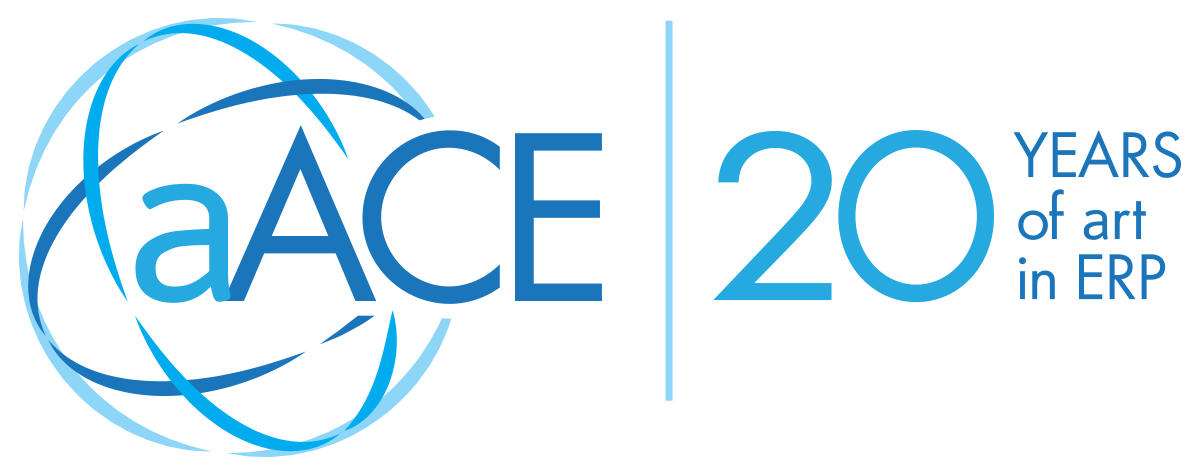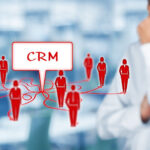Whether you’re evaluating a new ERP, planning to implement one, or taking steps to improve your existing ERP processes, change management integration can guide your organization to ERP success and skyrocket your ERP solution to the next level.
First, what’s an ERP?
An Enterprise Resource Planning (ERP) system is a software solution that seamlessly integrates your core business operation systems — accounting, sales, and operations — into a single platform so you can automate many of your day-to-day processes and get more visibility into your overall operations.
What is change management?
Change management is a process to plan for, track, and implement changes that impact your business operations. It standardizes processes to encourage your team members to successfully adapt to and adopt changes that directly affect them and their workflows or related procedures, systems, or tasks.
Why is change management integration an important component of ERP success?
It’s no secret that without proper planning and support, including executive and team buy in, ERP implementations can fail.
As many as half of ERP implementations fail on the first attempt. For successful implementations, many take longer than expected and end up costing more than budgeted. Often, these issues are compounded by the lack of proper planning and not working closely with an ERP professional to select the best ERP solution for your specific needs.
Other times, a lack of proper planning to promote company-wide adoption and training — and ultimately a clear understanding of ERP benefits — means team members don’t get on board with using the product. They get stuck in their “old ways” of doing things and never realize the full potential of a great ERP system.
This is where change management comes in.
Change management helps your team members foresee, plan for, and tackle roadblocks for your ERP implementation, adoption, and usage. Change management helps you manage the “people” part of changes within your organization. It helps you break down barriers — from fear to lack of knowledge and lack of training — to promote buy-in and facilitate success.
Here are 4 reasons why you should integrate change management into your ERP strategy:
Planning Strategy
Change management should be integrated in your ERP processes from the beginning — when you’re evaluating the right ERP for your organization — through implementation, adoption, day-to-day usage, and later upgrades and improvements.
Change management begins before you select your ERP. It should start with a careful and thorough evaluation of all of your existing operational processes such as policies, procedures, and tasks for sales, operations, and accounting.
Here are some questions to consider:
- Which of our existing processes are critical for operations?
- What would happen if any of these processes fail or are inaccessible for a short time or extended time period?
- Which of our existing processes work great?
- Which of our existing processes need improvements?
- How can we make improvements to these processes?
- What would it look like if we standardized and automated these procedures?
- What are our greatest potential roadblocks (both for systems and for people)?
- How do we overcome each of these challenges?
- What are the top 10 benefits of adopting an ERP for our organization?
- How do we get executive buy-in for our ERP?
- How do we communicate that buy-in, and promote a company-wide culture that embraces and uses our ERP to make us more successful?
Integrating change management into your planning strategy will help team members foresee obstacles and plan to deal with them; build timelines; create communication strategies for all phases or your ERP success; determine who is affected by your ERP implementation; set roles for team members; outline team member responsibilities both short- and long-term; create strategies, plans, and schedules for education and training; and develop long-term support strategies, including future upgrades and process or product improvements.
Communication
Effective and carefully strategized communication plans are critical for ERP success.
Integrating change management into your communication strategies can help you build value for your ERP, successfully communicate that value to all of your team members, ensure team member buy-in for your ERP company culture, and facilitate a two-way loop on feedback about where problems exist and how you can make improvements.
Here are some ideas about how to build your ERP communication strategy with a change-management focus.
Begin with one-way communication to:
- Help your team members understand what an ERP is
- Educate your team members about how an ERP will help them do their jobs better, faster, and easier
- Help your team members understand that ERP automation helps standardize processes, decrease potential for human error, eliminate repetitive tasks, and ultimately make your organization more successful
Examples of one-way communication tools:
- Intranet
- Emails
- Newsletters
- Posters and hand-outs
- Live demonstrations
- Overview and instructional videos
- Frequently Asked Questions documents and digital counterparts
Next, focus on two-way communication:
- Don’t just tell your employees what your ERP is and how it works; solicit feedback
- Encourage everyone to ask questions, share concerns or hesitations
- Address those issues as quickly (and clearly) as possible to eliminate fear and encourage adoption
- Build a company culture that embraces the ERP and its benefits
Examples of two-way communication tools:
- Company-wide meetings
- Location-specific meetings
- Departmental meetings
- Executive and key stakeholder meetings
- Live question and answer sessions (either in person or online)
- Education and Training
Even if you select the best ERP system that most perfectly aligns with your company needs and you implement it on time and within your budget, your project can fail without employee buy-in and usage.
Implementing change management into your education and training processes can help you overcome this potential roadblock to not only get your employees excited about using your ERP, but create power users who use, promote, and encourage others to fully embrace your ERP.
Here are a few things to consider when building your training and education plans:
- ERP education is not just a one-and-done training session. It should be continuous and on-going.
- Give your employees routine refreshers
- Update them whenever you add new processes or make system improvements
- Educate employees on how these new processes will impact their day-to-day functions, but also how the ERP will make doing their jobs easier and faster
- Talk openly about the advantages and disadvantages of your ERP
- Make plans to address and rectify issues with the disadvantages and clearly communicate those plans to your team
- Clearly define and explain each team member’s role and their related responsibilities
- Encourage feedback
- Respond to feedback
- Make training and education fun so your team members will be enthusiastic about changes within your organization.
Return on Investment
Once you’ve selected your ERP, implemented it, trained your employees, and put the system to work, it’s still not quittin’ time.
Many employees dread audits, reviews, and reports. Your ERP will make this process less painful by pulling your core operations into a single platform, but that doesn’t mean employees won’t still be hesitant to adopt the processes you’ll need to determine your ERP’s return-on-investment and short- and long-term success metrics.
Continue to integrate change management into your processes for creating metrics, Key Performance Indicators (KPIs), and other important business analytics. Show your employees how this knowledge helps them do their jobs better and will overall contribute to a more successful, sustainable company, now and in the future.
Do you need help getting started with change management processes for your ERP? Are you searching for the right ERP option for you? Join an aACE webinar today to learn more about how business management software can help you do business better, faster, and more efficiently.




